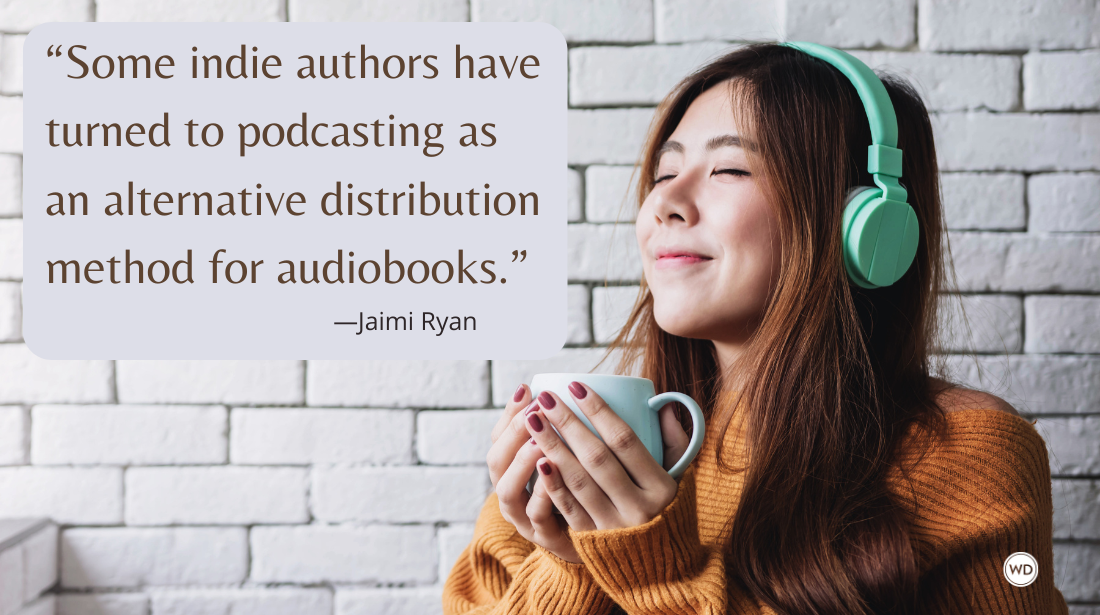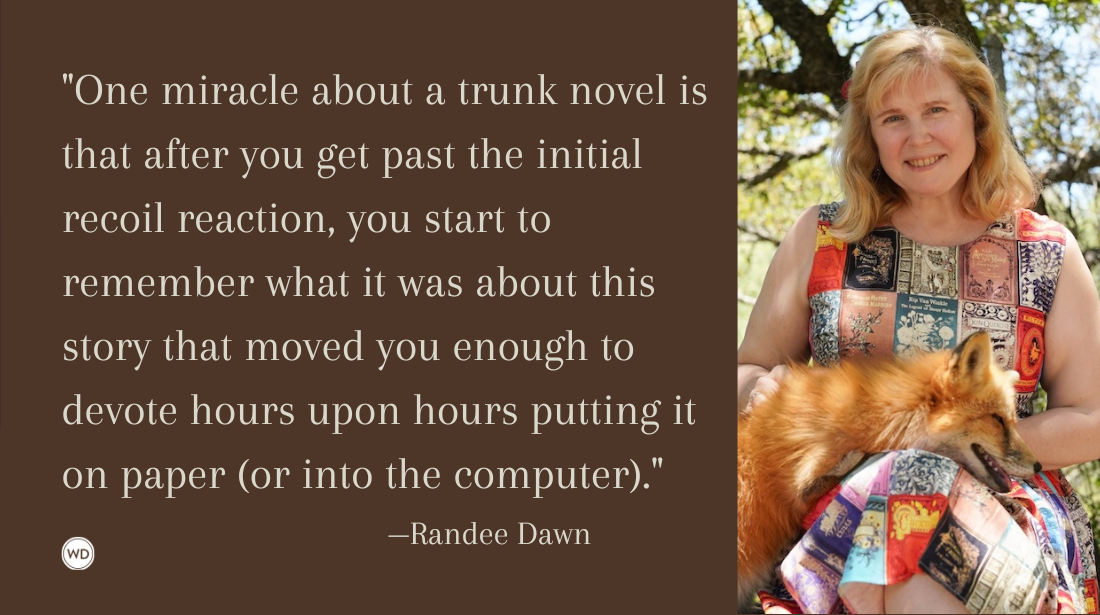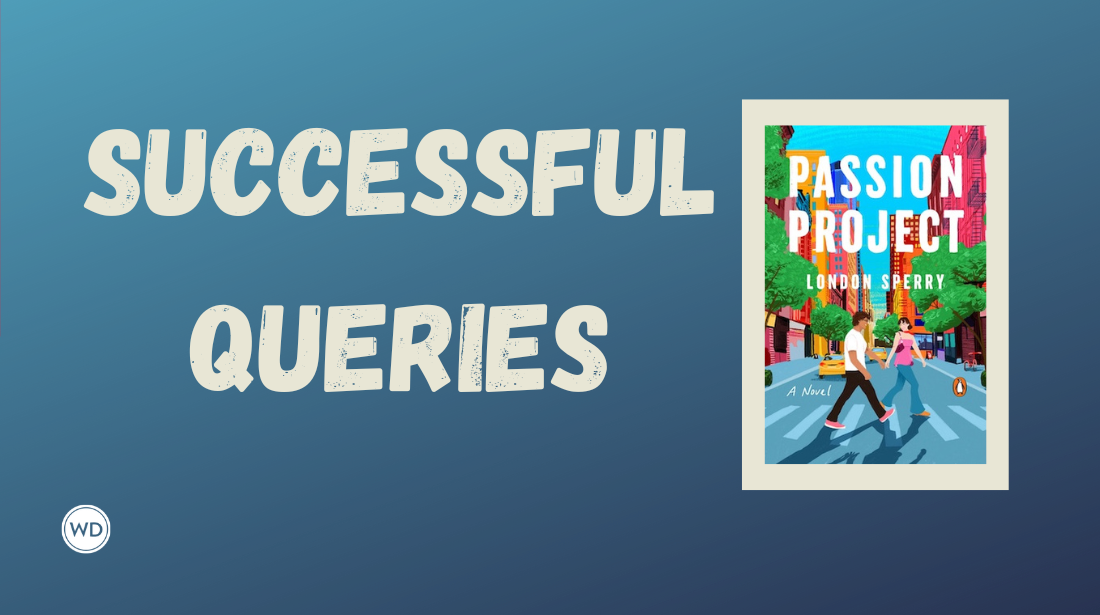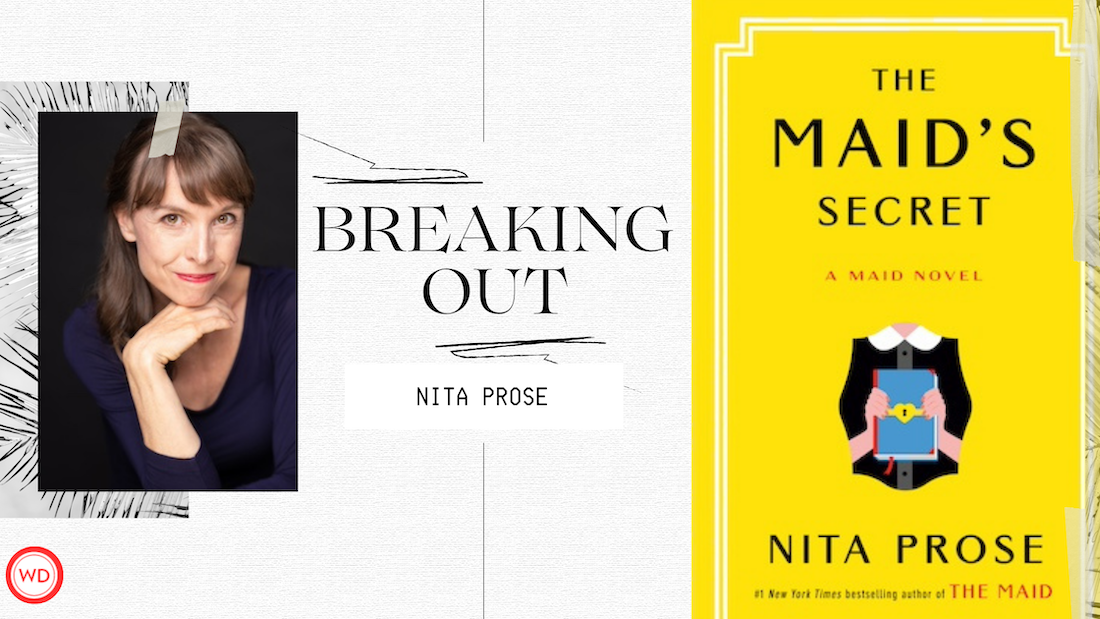On the Business of Self-Publishing: Claiming Power Over Your Novel
In the opening round of a three-post series on the business of self-publishing, AJ Wells shares his experience of reading hundreds of self-published books as well as feedback from other successful indie authors in relation to self-publishing as a way to claim power over your novel (as opposed to being a “last resort”).
I judge for the Writer's Digest Self-Published Novel and eBook Competitions each year. To date, I've read over 550 self-published books. The toughest aspect of judging, for me, is coming across an incredible novel only to find it hasn't even scratched the surface of potential in sales. As a fan of self-published novels, I set out to learn more about authors' processes related to the business of self-publishing. This is a three-article series, with the next article coming out in October, and the following in November. Special thanks goes to these wonderful self-published authors Katy Regnery, Scott Semegran, Ashleigh Nugent, Victoria Ventris Shea, and Kanika Batra for their time and thoughtful contributions to these articles.
If you're currently deciding whether or not to pursue self-publishing, let's get one thing out in the open—being honest with yourself is very much key. What I see far too often is that many self-published authors arrive at self-publishing not because they want to be there, but because they're in love with their book that's been rejected and are determined for people to read it. The most successful independent authors choose self-publishing as "another path," according to both Scott Semegran, an award-winning self-published author of eight books, and Victoria Ventris Shea, author of Shagoon, as opposed to choosing to finance their book as a default.
Rejection, in itself, can be a powerful tool, but only if you allow it to be a tool. If rejection motivates you, that's fine, but allow rejection to motivate you to learn, not push you to publish for the sake of proving a point. Every author has been rejected before. My short story that was just published by The Georgia Review, was rejected over 30 times—those rejections simply meant the story wasn't good enough. As opposed to allowing the rejection to fuel me, or blindly submit to hundreds of journals as a response, I sought criticism from honest friends and editors. Even after The Georgia Review took the story, the amazing Soham Patel, associate editor at The Georgia Review, asked that it be completely re-written three times, until the team of editors approved a version that still needed revisions. By the end of the process, I had rewritten a 20-page story eight times over three years and edited the manuscript exponentially more times. If I had published the original draft that I wrote years ago, I would have missed out on the biggest opportunity of my young writing career.
When asked about rejection, Katy Regnery, self-published romance writer who is a New York Times and USA Today bestselling author, says, "You must be open to constructive criticism. All criticism is constructive. I know that's a painful thing. [You may say] 'This is my baby, this is the best book I've ever written and it's amazing… if people would just read it, they would know—' No. Somebody who has more knowledge than you, read it. They gave you their feedback, and their feedback was 'no.' That will never change it into a better book."
But what will change your manuscript into a better book is allowing yourself to take the time to understand the rejection and pursue honest criticism. Despite Regnery's enormous sales numbers and alluring accolades, her first two books were rejected. She sought a professional editor to mark up her first manuscript and used the experience as a pure learning opportunity that taught her key craft aspects like "head hopping" that were hurting her marketability. Semegran had several novels in his "drawer" before he pursued self-publishing, but by then he had learned his lessons and developed into a seasoned author.
*****
Are you ready to take the next step toward a final draft of your novel? This course is for you! Join Mark Spencer in an intensive 16-week coaching session focused entirely on your novel in progress. You'll work with Mark on your choice of up to 60,000 words of your novel or two drafts of up to 30,000 words each.
*****
This is not to say that rejection absolutely means you should not proceed with publishing your book. At the same time, the matter of fact is that in self-publishing, you are the sole responsible party for your book, so if you cannot reckon with the difficult questions of Do you have a commercial audience? What's led you to self-publishing? Do you fully understand the reasons for rejection? Have you addressed those reasons for rejection? then self-publishing might not be for you—yet.
If you think of self-publishing your novel as a business with significant investments at stake, you must be able to answer tough questions and do diligent research. A harrowing truth is that many independent authors don't even read other self-published novels. To pursue self-publishing and not read self-published novels would be like spending your life's savings on stock from Wal-Mart, even though you prefer to shop at Target. If that metaphor isn't good enough for you, how about the honest truth that if you as a potential self-published author don't spend money on other self-published authors' books, why do you think that people will spend money on yours?
Reading (and researching) self-published novels will not only give you insight into how the market operates and succeeds, but it might even provide ideas on how to manage your book or avoid mistakes that others have made. In speaking on her experience, Shea lamented her early slip-ups in her novel Shagoon, and she spoke candidly about a particular rookie mistake that spurred unfair reviews on Amazon—she accidentally provided access to the eBook before the final copyedit had been done. I'd say her reviews are steadily recovering, and the quality of her novel will overcome those early reviews, but she'll be the first to tell you that she wants those avoidable poor reviews back. Semegran spoke to the idea of reading other indie authors as recognizing the market that you're in, and when he began picking up other self-published books, he realized the beauty offered to readers from the self-published world.
The curious and absolutely appealing aspect of self-publishing is when authors purposefully turn away from traditional publishing because representation doesn't match the goals authors have for their books. Despite how enticing a contract from big-time publishing houses may seem, self-publishing allows autonomy and independence that cannot be matched.
One example would be Ashleigh Nugent, self-published author of Locks, who realized, "I didn't want to keep spending energy on the 'gatekeepers' [agents]. I wanted to spend my time and energy on myself and prove the audience gets it [Locks]." After self-publishing, Nugent received representation from an agency in Liverpool, but that representation developed from his positive motivation to pursue self-publishing. When asked about his reasons for being an independent author to launch his career, he answered, "I didn't want to have the thought that someone was looking over my shoulder, and, in that way, I could speak with pure honesty. [Self-publishing] allowed me to write without fear." Fear, in a sense, that his words would be misunderstood by someone who wouldn't allow him to have the authority he desired or, perhaps, couldn't understand his work anyways.
Kanika Batra, author of Honeytrap, sought self-publishing despite having multiple offers for representation from acclaimed publishing houses. Her reasoning for financing her book developed from simple business mathematics: "For five years of writing, preceded by two years of research, 15 percent of each book sale was not the amount of return I was expecting, and I found it to be incredibly unfair." Even in terms of support, she realized that, "unless you’re the next Gillian Flynn or James Patterson, you’re pretty much on your own when it comes to selling your work [through traditional publishing]. Sure, your book will appear in some bookshops, and that’s exciting, but all the hard work falls upon you as the author." So, with that logic, why not just keep the profits from sales, anyways?
As a self-published author, you are your own business with a special product. You're able to build a handpicked team of trusted people who benefit only from the success of your book, not the publishing houses' desires. You control the marketing all the way through, which means you decide how the image of your book communicates with your audience. Self-publishing shouldn't be the rejection pile. In fact, considering all the positive aspects of self-publishing, financing your own project can be an incredible vehicle to claiming power over your novel.
AJ Wells holds a literature and creative writing MA from Auburn University. He was also a visiting graduate student at the Iowa Writers' Workshop. He earned his BA from The College of the Holy Cross where he double majored in English and classics and minored in rhetoric. He currently lives in his hometown Buena Vista, Georgia.








